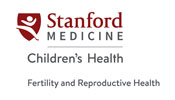Primary Ovarian Insufficiency (POI) is a condition in which a woman is running low on her egg supply or is completely out of eggs before the age of 40. Because approximately 1% of women will transition to menopause by age 40, most people do not include women who are having menopause at age 40 or beyond in the definition of POI. POI associated with lack of menstrual cycles has been more commonly called Premature Ovarian Failure (POF). However, many experts now believe that POI is a more accurate term because in many cases the ovary has not completely "failed" and instead may still function to produce hormones or release eggs. Some people also refer to POI as Diminished Ovarian Reserve (DOR) if low egg supply is associated with infertility. However, it is important to point out that low egg supply occurring prematurely may have significant implications beyond fertility.
Please visit these websites for more information related to POI:

Connect with us:
Download our App: